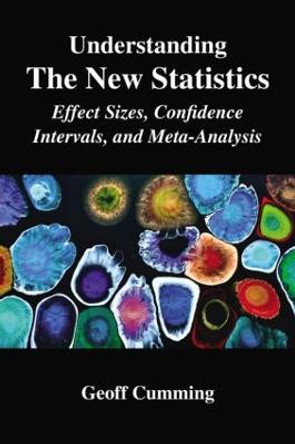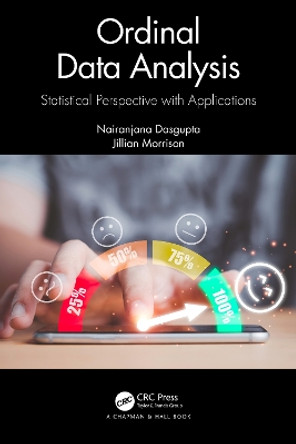Description
The practice of meta-analysis allows researchers to obtain findings from various studies and compile them to verify and form one overall conclusion. Statistical Meta-Analysis with Applications presents the necessary statistical methodologies that allow readers to tackle the four main stages of meta-analysis: problem formulation, data collection, data evaluation, and data analysis and interpretation. Combining the authors' expertise on the topic with a wealth of up-to-date information, this book successfully introduces the essential statistical practices for making thorough and accurate discoveries across a wide array of diverse fields, such as business, public health, biostatistics, and environmental studies.
Two main types of statistical analysis serve as the foundation of the methods and techniques: combining tests of effect size and combining estimates of effect size. Additional topics covered include:
- Meta-analysis regression procedures
-
Multiple-endpoint and multiple-treatment studies
-
The Bayesian approach to meta-analysis
-
Publication bias
-
Vote counting procedures
-
Methods for combining individual tests and combining individual estimates
-
Using meta-analysis to analyze binary and ordinal categorical data
Numerous worked-out examples in each chapter provide the reader with a step-by-step understanding of the presented methods. All exercises can be computed using the R and SAS software packages, which are both available via the book's related Web site. Extensive references are also included, outlining additional sources for further study.
Requiring only a working knowledge of statistics, Statistical Meta-Analysis with Applications is a valuable supplement for courses in biostatistics, business, public health, and social research at the upper-undergraduate and graduate levels. It is also an excellent reference for applied statisticians working in industry, academia, and government.
About the Author
JOACHIM HARTUNG, PhD, is Professor in the Department of Statistics at the Dortmund University of Technology, Germany. He has published several books and two dozen journal articles in the field of statistics.
GUIDO KNAPP, PhD, is Assistant Professor in the Department of Statistics at the Dortmund University of Technology, Germany. Dr. Knapp's areas of research interest include variance component models, error components regression models, meta-analysis, and flexible design in clinical trials.
BIMAL K. SINHA, PhD, is Presidential Research Professor of Statistics in the Department of Mathematics and Statistics at the University of Maryland at Baltimore County (UMBC). A Fellow of both the Institute of Mathematical Statistics and the American Statistical Association, Dr. Sinha's research specializes in the areas of multivariate analysis, mixed linear models, decision theory, robustness, and environmental statistics.
Reviews
"The strength of this book is certainly the detailed development and presentation of inference for normal fixed and random effects models as applied in meta-analysis and similar studies, such as inter-laboratory studies. A particularly well done part of the book centers on homogeneity testing and on confidence interval estimation of the so-called heterogeneity parameter in the standard random effects model." (Journal of Biopharmaceutical Statistics, January 2010)
"The authors have written a good guide to a broad section of the methods available for statistical meta-analysis." (Mathematical Reviews, 2009)
"[The authors], active researchers themselves, have done a commendable job in writing this introductory book noted for its clarity and style of presentation and coverage of some totally new topics." (Choice, April 2009)
Book Information
ISBN 9780470290897
Author Joachim Hartung
Format Hardback
Page Count 272
Imprint Wiley-Interscience
Publisher John Wiley & Sons Inc
Weight(grams) 515g
Dimensions(mm) 238mm * 164mm * 19mm






